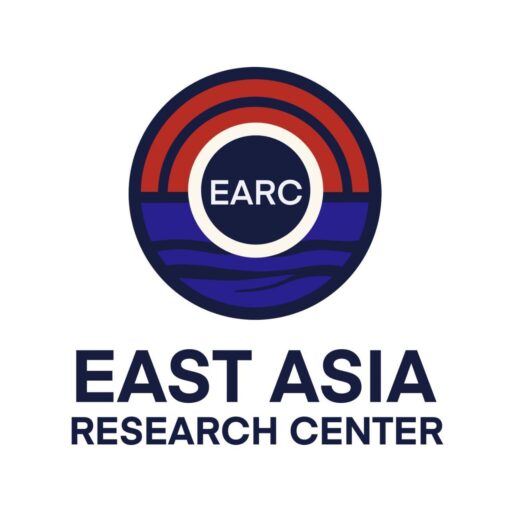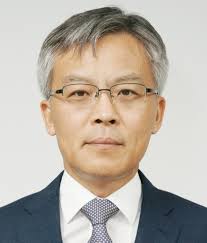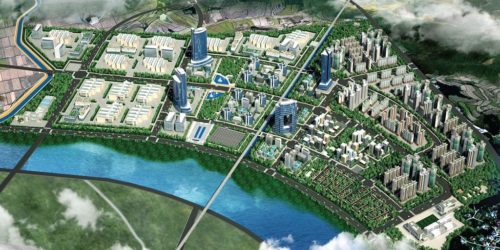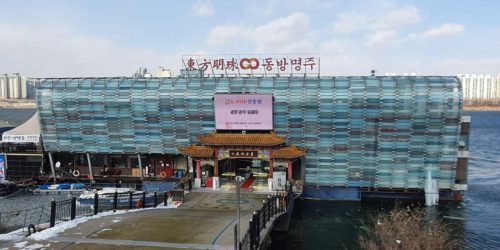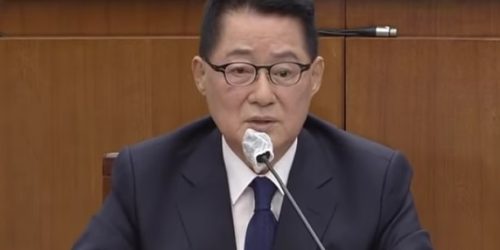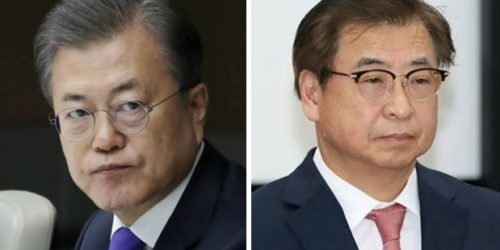China’s United Front Influence Operation Agencies in Korea Revealed as Search for Chinese Police Stations Continue; Political Ties Discovered
2022-12-29, Tara O
The Chinese restaurant in Seoul, Korea suspected of being a Chinese police station is run by Wang Haijun (王海军) [pronounced as Wang Hai-goon (왕해군) in Korean], a People’s Republic of China citizen. Related to the restaurant is HanGang Cultural Media/HG Culture Media, which is also in the same office as the Korea branch of the People’s Republic of China’s (PRC) Xinhua Network and shares office space with PRC’s CCTV in Seoul near the National Assembly in Yoido, Seoul.
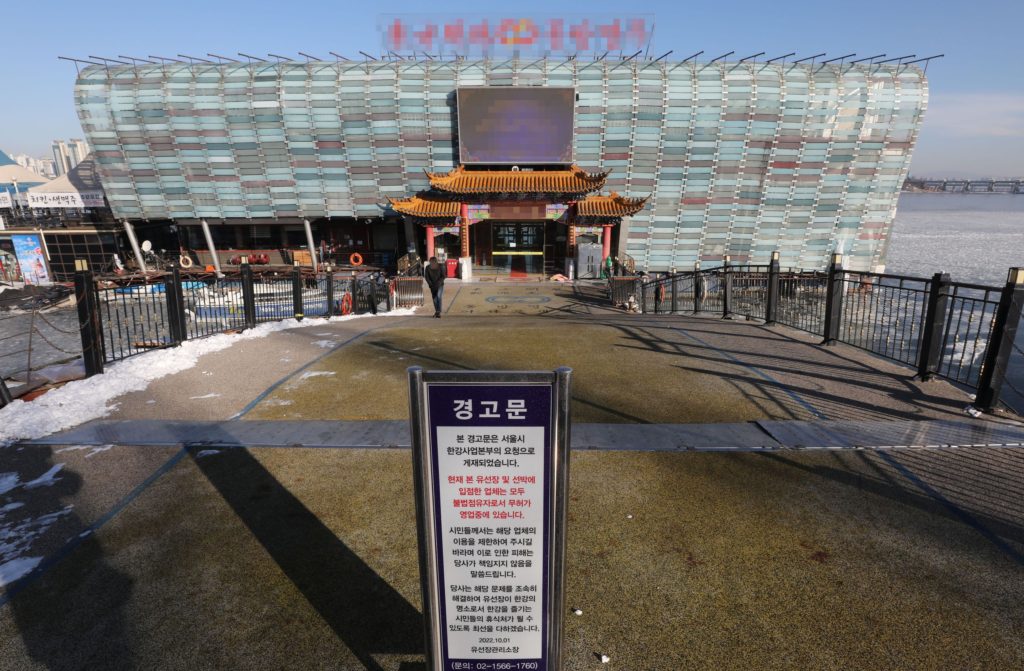
Dongbang Myungjoo (동방명주), the restaurant on Han Gang (Han River), it turns out, is operating illegally without obtaining permits (as a vessel since it floats on a river) from Seoul Metropolitan Government’s Han Gang (Han River) Development authorities, as shown by the prominent sign in front. In July 2020, it signed a 30-year lease, but has not paid rent and is involved in a lawsuit with the owner of the property.
On the 2nd floor of Dongbang Myungjoo restaurant, name plates of 3 of the CCP front organizations adorn the door to a room. These organizations will be discussed in later sections.
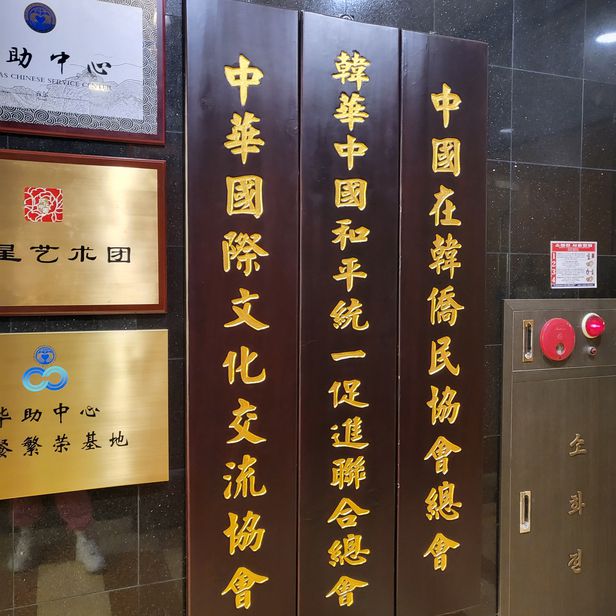
The restaurant is one of the first item to be uncovered, but in the course of investigation by various South Korean Youtubers (particularly Garo Sero Yeonguso) and journalists, it was discovered that there are numerous front organizations in South Korea controlled by the Chinese Communist Party (CCP) that are headed by Wang Haijun (Wang Hai-goon).
The U.S. State Department stated that the CCP’s United Front Work Department (UFWD) is “tasked with co-opting and neutralizing threats to the party’s rule and spreading its influence and propaganda overseas.” The UFWD has a foreign influence mission which seeks to co-opt ethnic Chinese individuals and communities living outside China as well as to direct foreign entities conducting influence operations targeting foreign actors and states. Some of these foreign entities have clear connections to the CCP’s UFWD’s mission, while others are less obvious. The UFWD primarily seeks to influence through connections that are difficult to publicly prove.
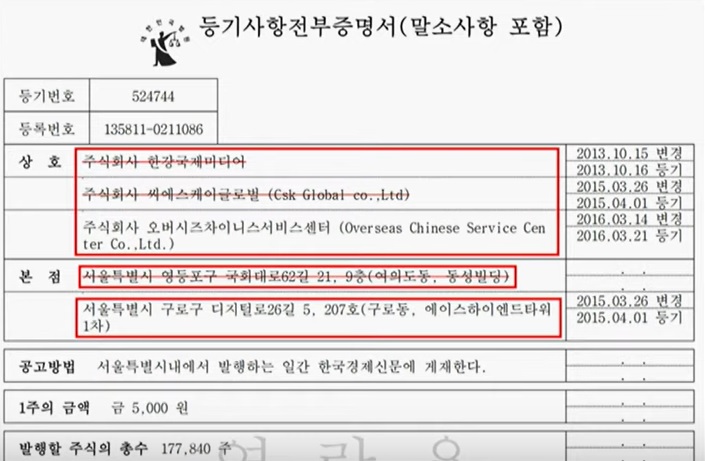
Overseas Chinese Service Center (OCSC) in Korea
The controversial Chinese police centers exposed in the Safeguard Defenders reports are part of the Overseas Chinese Service Center (OCSC) network. OCSC is sponsored by the CCP organ UFWD, and has a global network with branches in numerous countries around the world, including the Republic of Korea, the United States, and Canada. Wang Haigoon is the CEO of the OCSC in South Korea. (29:14)
On a Chinese website, the address for OSCS in Korea was in a posh neighborhood of Shinsa-dong, Gangnam district of Seoul, at the location of a Chinese medicine clinic. The clinic was named ShinDongHwa (신동화 한의원) and it was run by Han Sung-ho, the founder of the CCP front organizations in Korea. Wang inherited Han Sung-ho’s positions to continue conducting influence operations. The clinic receives Wang’s mail, attesting Wang’s ties to the clinic, OSCS, and other CCP influence agencies.
Interestingly, National Assemblyman Thae Yong-ho, People Power Party, had an office in the same building, when he was running to be a lawmaker, even draping a campaign banner on the building. (47:13)
The address of OCSC’s main office in the registration is different, and is at the same location as a travel agency in Guro District, Seoul, run by Wang’s wife, Bae Ji-yeon. Bae is Chosun-jok, which is a South Korean term for ethnic Koreans who went to Manchuria mostly in the late 1800s/early 1900s, and settled there, later becoming Chinese citizens, and their descendents. OCSC’s initial address on the registry was the 9th floor of the Dongsung Building in Yoido on the street across from the National Assembly, the same building and floor where the restaurant’s office, HanGang Cultural Media / HG Culture Media and China’s state mouthpiece CCTV are located.

The registry shows that Wang Haigoon is the CEO of OCSC as of March 2016, taking over from his wife Bae Jie-yeon, the previous CEO. (Note: For ties among Dongbang Myungjoo restaurant, HanGang Cultural Media / HG Culture Media, CCTV, and Xinhua, see here.)
National Association for China’s Peaceful Unification (한화중국화평통일촉진연합총회)
On November 21, 2016 in Yoido, Seoul, Wang was elected as the 5th General Chairman of the National Association for China’s Peaceful Unification (NACPU) [한화중국화평통일촉진연합총회 (韓華中國和平統一促進聯合總會 )], a front organizations of the PRC. NACPU is also referred to as the Council for the Promotion of the Peaceful Reunification of China. This organization advocates “one China,” opposes Taiwan’s independence, and pursues the unification of the PRC and Taiwan under CCP rule. The U.S. State Department describes the organization as the CCP’s United Front Work Department and has designated it as a “foreign mission” of the PRC.
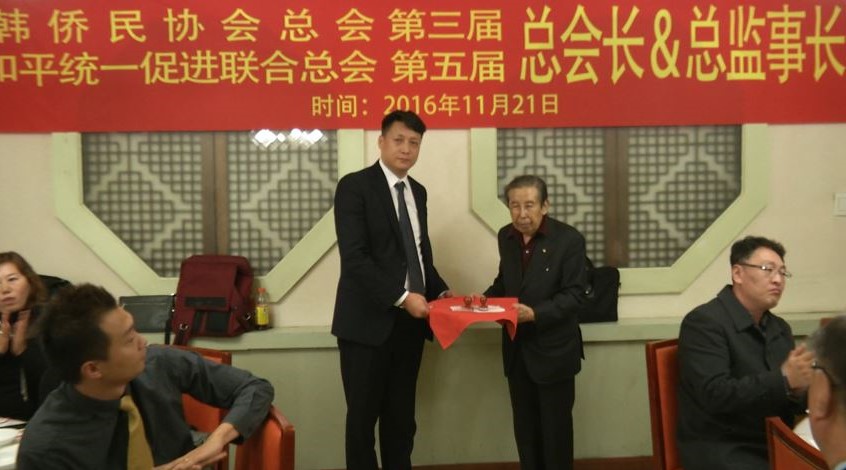
General Assembly of the Chinese Citizens Association of the PRC in Korea (중국재한교민협회총회)
On the same day in 2016, Wang was also elected to be the General Chairman of the General Assembly of the Chinese Citizens Association of the PRC in Korea [중국재한교민협회총회 (中国在韩侨民协会总会)]. Wang replaced Han Sung-ho [한성호 (韩晟昊)], the previous General Chairman. Sul Young-bok [설영복(薛荣福)] remained as the Inspector General. Established in February 2002, the General Assembly of the Chinese Citizens Association of the PRC in Korea operates under the guidance, supervision, and “extensive support” of the PRC Embassy in Seoul. It is a front organization of the CCP’s United Front Work Department.
Han Sung-ho created and cultivated these two front organizations, NACPU and the General Assembly of the Chinese Citizens Association. Han is considered the “godfather” of pro-CCP Chinese in Korea, who are different from the anti-communist Chinese who came to Korea before Korea’s normalization of relations with PRC.
Wang Haijun’s (Wang Hai-goon’s) other positions
Wang has numerous other key positions related to China: The General Treasurer of PRC’s Xinhua News Agency’s Xinhua Network, Korea branch; the CEO of the HanGang Cultural Media/HG Culture Media (에이치지문화미디어); the Chairman of the China International Cultural Exchange Center (CICEC) (중화국제문화교류협회), and the Overseas Committee Member of the JoongGook HwaGyo Yonhap-hoi (중국화교연합회) (Overseas Chinese Federation of PRC or All-China Federation of Returned Overseas Chinese).
China International Cultural Exchange Center (CICEC) (중화국제문화교류협회)
The China International Culture Exchange Center (CICEC) is a front organization of the PRC’s Ministry of State Security, particularly its 12th Bureau, for foreign influence operations. (p. 24) It was created in 1984 to influence foreign research organizations, academics, and high-profile foreigners, and was key to the “China’s peaceful rise” narrative.
The HanGang Cultural Media/HG Culture Media, which shares the same address as the Xinhua’s Korea branch, also runs the Donbang Myungjoo Chinese restaurant suspected of being a secret Chinese police station. See here and here for details.
All-China Federation of Returned Overseas Chinese
While purporting to represent the Chinese Community overseas, the All-China Federation of Returned Overseas Chinese is controlled by the CCP, thus it is a front organization. For example, in Italy, the organization protested the Dalai Lama’s visit to Italy through demonstrations and a meeting with a Democratic Party representative in Rome. (p. 29) The All-China Federation of Returned Overseas Chinese has seats at the national committee of the Chinese People’s Political Consultative Conference.
Chinese People’s Political Consultative Conference
Wang appears to be active in the Chinese Communist Party in China. During March 3-13, 2017, Wang attended the Chinese People’s Political Consultative Conference—one of the conferences in the largest political event in the PRC, the “Two Sessions”—the annual plenary sessions of the national or local People’s Congress and the national or local committee of the Chinese People’s Political Consultative Conference. The latter is composed of representatives of the Chinese Communist Party (CCP) and the Democratic Party (a satellite party of the CCP), and other organizations. These are not events that any Chinese citizen can attend, but only for active party members in good standing.
South Korean Politicians
China wanted a virus lab in South Korea; Lawmaker Kim Doo-kwan quickly responded
National Assemblyman Kim Doo-kwan (김두관), Democratic Party of Korea (DPK) (Deobureo Minjoo Party), leans heavily toward China. Kim offered land (Busan University’s Yangsan campus) to China, when China pressured Korea hard to build a virus institute similar to the one in Wuhan, China. In August 2020, soon after the WHO officials visited China (but not the Wuhan Institute of Virology), Luo Yujen, the director of the China Overseas Friendship Association (COFA) [중화해외연의회 (中華海外聯誼會)], made the suggestion to build a similar virus lab in Korea at the Northern Forum (북방포럼 2020). COFA is an organization that plans and executes overseas projects together with the CCP’s United Front Work Department (UFWD). Luo Yujen is a member of the Chinese Communist Party and the son of Feng Lida, a biological warfare expert in the CCP’s People’s Liberation Army. The South Korean public was against building such a virus lab in Korea.
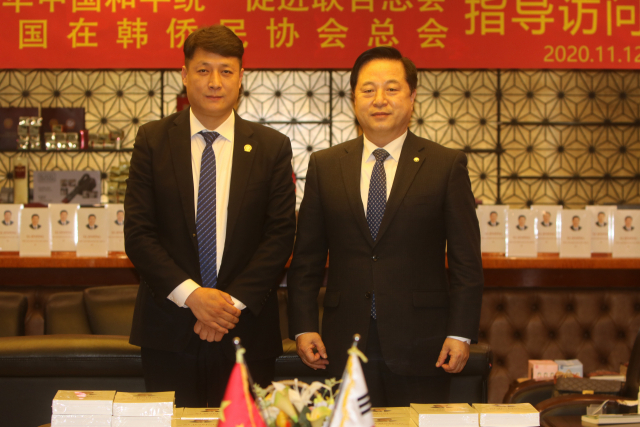
Kim Doo-kwan attended a meeting for “Korea-China Cultural and Economic Revitalization in the Coronavirus Era” (코로나 시대 한·중 문화 및 경제 활성화를 위한 간담회) on November 12, 2020 at Dongbang Myungjoo, the Chinese restaurant at the heart of the Chinese police station controversy. Wang Haigoon gave Xi Jinping’s biography to Kim as a gift at the event.
재한동포경제인연합회 (KDG) (literally Overseas Chinese Business Association)
China employs the model of Soviet operations targeting Western businesses with its trade-themed “people’s diplomacy” through the China Council for the Promotion of International Trade (CCPIT, 中国国际贸易促进会). CCPIT typically partners with foreign business associations and law firms, and establishes similarly structured front organizations. In the report “Hijacking the Main Stream,” front organizations “often named ‘China chamber of commerce,’ gather together local businesses with interest in China and representatives of large PRC state and private companies, participate in CCPIT activities and initiatives, and often overlap with other networks linked to CCP influence agencies.” (p. 18)
Fitting the description of a typical CCPIT front organization well is JaeHan Dongpo Gyeongjaein Yonhap-hoi [재한동포경제인연합회(KDG)]. It translates as Overseas Chinese Business Association, but it uses “KDG” as its abbreviation.
KDG held its inauguration ceremony on June 28, 2021 at the Echo Valley building in Mapo district, Seoul, Korea. The founding members consist of more than 100 Chosunjok business owners and business organization officials. Lee Sun-ho (이선호) was chosen as KDG’s first chairman.
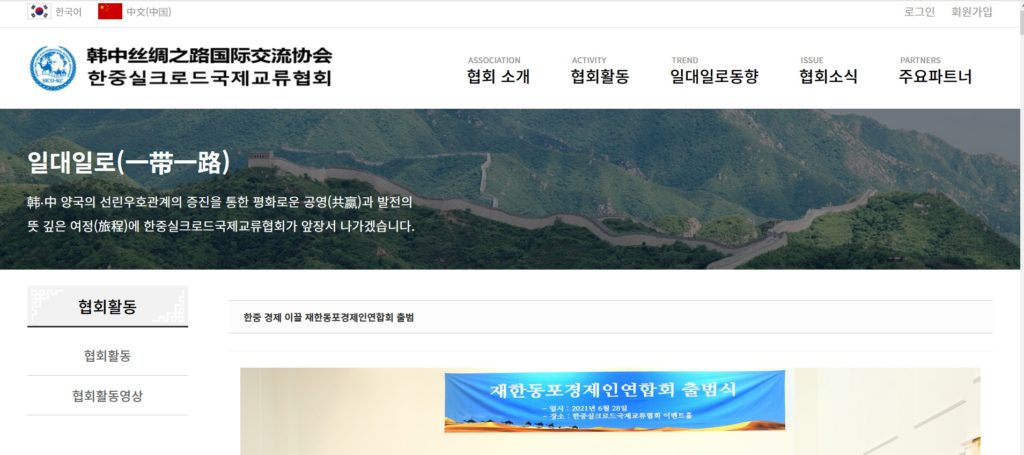
Lee Sun-ho is also the Chairman of Korea-China Silk Road International Exchange Association (한중실크로드국제교류협회). Interestingly, the KDG inauguration is on the Korea-China Silk Road International Exchange Association website (www.sico-kc.org) in the “Association Activities” as if the two organizations are one and the same. “One Belt, One Road” [일대일로(一带一路)] appears prominently on top left of the website.
Due to COVID, many sent videos, rather than attend in person. South Korean politicians who sent congratulatory videos for the KDG inauguration include:
- Moon Hee-sang (문희상), former National Assembly Speaker
- Lee Hae-chan (이해찬), former Democratic Party of Korea (DPK) (Deobureo Minjoo Party) Chairman
- Lee Nak-yeon (이낙연), former DPK Chairman
- Chung Sye-kyun (정세균), former Prime Minister
- Kim Moo-sung (김무성), former National Assemblyman, Saenuri Party (now People Power Party)
- Kim Doo-kwan (김두관), National Assemblyman, DPK
Congratulatory messages were sent by:
- Song Yong-gil (송영길), Chairman of DPK (at the time of the ceremony)
- Ban Ki-moon (반기문), former UN Secretary-General
Representing the Chinese side were a list of people, including Kwon Soon-ki (권순기, 權順基), chairman of the China Aju Economic Development Association, which is under PRC’s Foreign Ministry, who sent a congratulatory video.
During the Moon Jae-in administration, Kwon Soon-ki, a 2nd generation Chosunjok, received the Camellia Medal of the National Order of Merit (국민훈장 동백장) at the Korean embassy in Beijing, the first Chosunjok to be bestowed this honor by the South Korean government. With his wide network of main figures in China, Kwon is known as the “problem solver” for Korean businesses entering and doing business in China. This requires good relations with key local and national CCP members.
Wang Haigoon, as the General Chairman of the General Assembly of the Chinese Citizens Association of the PRC in Korea, attended the ceremony in person, representing the PRC side.
Han-Joong Uiwon Yonmang (한중의원연맹, Korea-China Parliamentary Federation)
On December 2, 2022, 100 South Korean lawmakers became founding members of the Han-Joong Uiwon Yonmang (한중의원연맹, Korea-China Parliamentary Federation) at an inauguration ceremony held at the National Assembly in Yoido, Seoul. That is 100 of 300 or 1/3 of the South Korean National Assembly. The slogan on the banner read “Korea-China Co-existence and Prosperity.”
The two lawmakers in the Preparatory Committee for the Founding of the Korea-China Parliamentary Federation were Hong Young-pyo (홍영표), Democratic Party of Korea (DPK, Deobureo Minjoo Party) and Kim Hak-yong (김학용), People Power Party (PPP). Hong Young-pyo became the chairman and Kim Hak-yong became the Senior Vice President of the new corporation. Hong stated, “the Korea-China Parliamentary Federation will be a stepping stone for the two countries to work together with one heart and create a prosperous future.”
They chose a “corporation” as an entity in order to bypass “the limitations of parliamentary diplomacy with China,” which applies to the existing parliamentary diplomatic groups at the National Assembly. The two existing groups are the “Korea-China Parliamentary Forum on Foreign Relations” (한중의회외교포럼) and the “Regular Exchange System between the Korea-China Parliaments” (한중의회 간 정기교류체제).
The limitations could include the amount of money that a lawmaker can receive from foreign or any other entities. For instance, the anti-corruption “Kim Yong-ran Law” stipulates that government employees be punished if they receive more than ₩30,000 in a meal, ₩50,000 in gifts, ₩100,000 in cash gifts (for weddings, funerals).
The 100 lawmakers who signed up to be the members of the Korea-China Parliamentary Federation are:
Democratic Party of Korea (더불어민주당) (59):
▲ Kang Deuk-gu (강득구)
▲ Kang Byung-won (강병원)
▲ Kang Sun-woo (강선우)
▲ Ko Young-in (고영인)
▲ Kwon Chil-seung (권칠승)
▲ Kim Kyung-hyup (김경협)
▲ Kim Nam-kuk (김남국)
▲ Kim Duk-wan (김두관)
▲ Kim Min-ki (김민기)
▲ Kim Byung-wook (김병욱)
▲ Kim Sung-joo (김성주)
▲ Kim Young-bae (김영배)
▲ Kim Eui-kyeom (김의겸)
▲ Kim Ju-young (김주영)
▲ Kim Cheol-min (김철민)
▲ Kim Hang-jung (김한정)
▲ Kim Hoi-jae (김회재)
▲ Do Jong-hwan (도종환)
▲ Mang Sung-kyu (맹성규)
▲ Min Hong-chul (민홍철)
▲ Park Kwang-on (박광온)
▲ Park Yong-jin (박용진)
▲ Park Jeung (박정)
▲ Seo Sam-seok (서삼석)
▲ Sul Hoon (설훈)
▲ So Byung-chul (소병철)
▲ So Byung-hoon (소병훈)
▲ Shin Hyun-young (신현영)
▲ Ahn Gyu-back (안규백)
▲ An Ho-young (안호영)
▲ Yang Kyung-sook (양경숙)
▲ Yang Ki-dae (양기대)
▲ Eoh Kiy-ku (어기구)
▲ Oh Gi-hyoung (오기형)
▲ Wi Seong-gon (위성곤)
▲ Youn Kun-young (윤건영)
▲ Youn Kwan-suk (윤관석)
▲ Yoon Yeong-deok (윤영덕)
▲ Yoon Young-chan (윤영찬)
▲ Yoon Jae-kab (윤재갑)
▲ Yoon Joon-byeong (윤준병)
▲ Lee Kai-ho (이개호)
▲ Lee Byung-hoon (이병훈)
▲ Lee Sang-heon (이상헌)
▲ Lee Yong-sun (이용선)
▲ Lee In-young (이인영)
▲ Lee Jae-jung (이재정)
▲ Lim Jong-seong (임종성)
▲ Jang Chul-min (장철민)
▲ Jeon Hae-cheol (전해철)
▲ Jung Tae-ho (정태호)
▲ Jin Sun-mee (진선미)
▲ Choe Kang-wook (최강욱)
▲ Choi In-ho (최인호)
▲ Han Jeoung-ae (한정애)
▲ Huh Young (허영)
▲ Hong Kee-won (홍기원)
▲ Hong Sung-kook (홍성국)
▲ Hong Young-pyo (홍영표)
People Power Party (국민의힘) (35):
▲ Kang Dae-sik (강대식)
▲ Kang Min-kuk (강민국)
▲ Kwon Myung-ho (권명호)
▲ Kim Sung-won (김성원)
▲ Kim Seung-su (김승수)
▲ Kim Hak-yong (김학용)
▲ Kim Hyung-dong (김형동)
▲ Kim Hee-gon (김희곤)
▲ Rho Yong-ho (노용호)
▲ Park Duk-hyum (박덕흠)
▲ Park Sung-joong (박성중)
▲ Baek Jong-hean (백종헌)
▲ Suh Bum-soo (서범수)
▲ Suh Jung-sook (서정숙)
▲ Yu Eui-dong (유의동)
▲ Yoo Sang-bum (유상범)
▲ Yun Ju-keyng (윤주경)
▲ Lee Dal-gon (이달곤)
▲ Lee Myoung-su (이명수)
▲ Lee Jong-seong (이종성)
▲ Lee Hun-seung (이헌승)
▲ Lim Byung-heon (임병헌)
▲ Jeon Bong-min (전봉민)
▲ Jeong Dong-man (정동만)
▲ Jung Hee-yong (정희용)
▲ Cho Eun-hee (조은희)
▲ Joo Ho-young (주호영)
▲ Choi Seung-jae (최승재)
▲ Choi Youn-suk (최연숙)
▲ Choi Young-hee (최영희)
▲ Choi Chun-sik (최춘식)
▲ Choi Hyung-du (최형두)
▲ Ha Tae-keung (하태경)
▲ Her Eun-a (허은아)
▲ Hwangbo Seung-hee (황보승희)
Justice Party (정의당) (3):
▲Bae Jin-gyo (배진교)
▲Sim Sang-jeung (심상정)
▲Lee Eun-ju (이은주)
Transition Korea Party (시대전환, Shidae Jeonhan-dang) (1):
▲Cho Jung-hun (조정훈)
Non-affiliated (무소속) (2):
▲Kim Hong-gul (김홍걸) (the son of former president Kim Dae-jung)
▲Yang Jung-suk (양정숙)
The initiative to create the Korea-China Parliamentary Federation suddenly accelerated after Li Zhanshu, Chairman of the Standing Committee of China’s National People’s Congress (중국 전국인민대표대회), in September 2022, visited the National Assembly, meeting with Kim Jin-pyo (김진표), the National Assembly Speaker, and other lawmakers in various political parties.
Wang’s wife Bae Ji-yeon and Fantagio Corp.
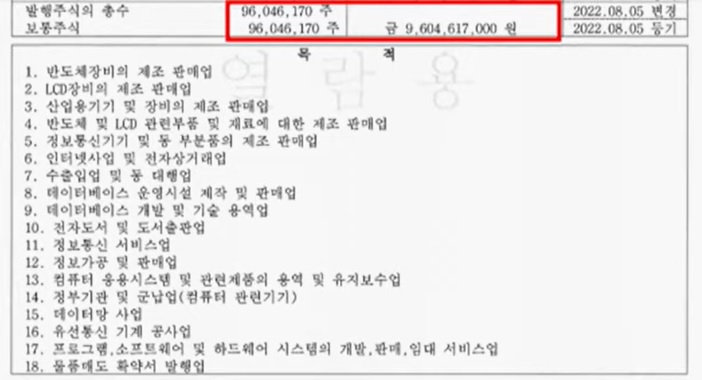
Wang’s wife Bae Ji-yon, an executive of H&G Culture Media, became an external CEO of Fantagio Corporation on December 2, 2016. (54:08) Fantagio was initially founded as a talent agency for the entertainment industry. It was later acquired by China. All key personnel at the company are PRC citizens, including Foo Quangzhou, the internal CEO (57:22). Fantagio, previously Edu Company Corp, has a long list of business areas that it is pursuing, and the majority listed on the registration are not related to entertainment, but extend far from that industry. Business areas includes high-tech, telecommunications, defense, aviation, chemical, biological, education, publishing, media, culture, real estate, cryptocurrency, construction, sea cable, investment, mining, oil exploration, health food, and so on: (54:42)
- Semiconductor manufacturing & sales
- LCD equipment manufacturing & sales
- Industrial air conditioning and equipment manufacturing & sales
- Semiconductor/LCD/etc.-related parts and material manufacturing & sales
- Telecommunications equipment and partially assembled copper parts manufacturing & sales
- Internet business and e-commerce business
- Export-import business and copper agency business
- Data center operations, facility construction & sales
- Database development and technology services
- E-library and book publishing
- Information processing and sales
- Telecommunications services
- Computer applications, systems, and related products, services, & maintenance
- Government contracts and military contracts
- Data networks
- Communications cable construction
- Program, software, and hardware systems development, sales, lease, & service
- Issuance of affirmation documents/certificates of sales of goods
…
54. Aircraft parts manufacturing & sales
57. Military supplies manufacturing & sales
58. Navigation, GPS manufacturing & sales
…
60. After-school learning center (Hagwon) operations
61. Language school operations
62. Infant, toddler education & child care
63. Education consulting and all related businesses
64. Education program research and operating education institutes for teachers
65. Book publishing and printing
66. Online and offline education services
67. Franchising Hagwon (after-school learning centers)
68. Interior remodeling of franchising hagwon spaces
…
70. Life-long educational facility operations
71. News Media operations
72. Cable, wifi content development & provision
73. Printing and reproduction of recorded media (audio, video, CD ROM, etc.)
…
77. Multi-use cultural center operations
78. Camping operations domestic and abroad
…
80. Study abroad business
81. Headhunting business
…
84. Biological product business
85. Biological related business and pharmaceutical and pharmaceutical supplies, chemical drugs, and veterinary medicine manufacturing & sales
86. Miacin (a type of anti-biotic) development, manufacturing & sales
…
88. Domestic/Overseas mining, rock mining & sales, oil exploration & excavation
89. Foreign natural resources development consulting business
…
93. Real estate consulting and investment
94. Venture capital
95. Cultural content production, management agency & cultural content investment
…
99. Electrical Engineering business
100. Information & communications and broadcasting related business investment domestically and abroad
…
106. Health food manufacturing & sales
…
169. Digital exchange security service and building cryptocurrency distribution-related system
…and more.
It is an extensive and impressive line of businesses, including ones that are highly sensitive and gravely dangerous to South Korean national security as well as to the security of U.S. Forces Korea, which include communications networks and underwater cables. During the pro-China Moon administration in February 2020, Korea’s public energy company KEPCO pushed to include Chinese companies for an underwater cable laying project between Jejudo and Wando islands, despite the opposition from domestic cable laying companies and to the detriment of national security. It is unclear whether a Chinese company won this contract—there needs to be an investigation.
Wang’s Statement
On December 29, 2022, journalists gathered in front the restaurant to hear Wang’s explanation, but he only made a brief statement that he’ll hold a press conference with explanation on December 31. He announced he will charge an entrance fee of ₩30,000 ($24) per person, limiting it to 100 people. There was no explanation about how to buy the “entry ticket.” He then read a statement in Chinese. He stated he is the CEO of various organizations mentioned above, and said in Korean to the journalists, “don’t you know who I am?” “You may not know me, but do the executives of your media companies, even the directors and CEOs, really not know me?” “The Journalists Social Gathering for the 30th Anniversary of Korea-China Diplomatic Relations’ (한중수교 30주년 한중 언론인 친목회) held on August 19 this year was also held in Dongbang Myungjoo with my funding, but have you already forgotten?” Perhaps he doesn’t need to give an explanation.
Conclusion
As described, Wang haigoon is a leading figure in numerous CCP front organizations conducting influence operations in Korea. Ironically, he is asking the South Korean government for police protection. after the revelation on December 23, 2022 that the restaurant is suspicious of being a Chinese police station. The electronic message board on the façade of the Dongbang Myungjoo restaurant flashes claims that the restaurant chairman (Wang Haijun) and the staff are concerned for their safety and request police to protect them. Wang Haijun is to hold a press conference before the year end.
What is more disturbing is how many CCP’s United Front Work Department organizations exist in Korea and how wide their influence in politics, media, culture, education, government contracting, and so on. The search for extraterritorial Chinese police stations in Korea has revealed CCP’s United Front Work Department agencies and other organizations designed to conduct influence operations in South Korea. What has been uncovered is probably just the tip of the iceberg. Various government agencies need to focus on reviewing, inspecting, and investigating this issue.
